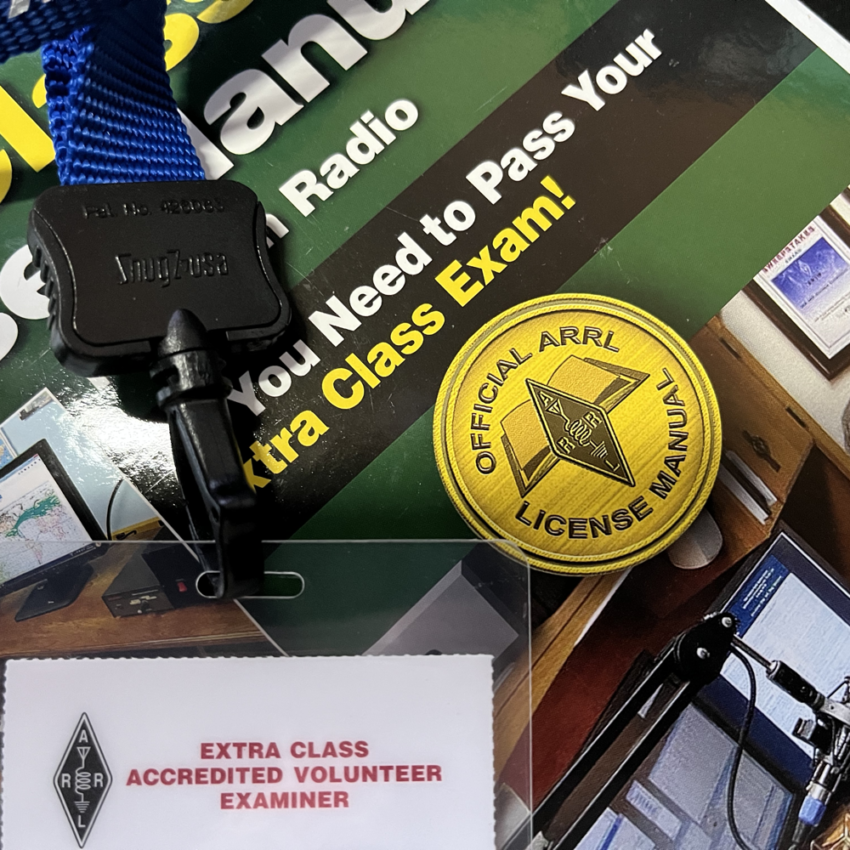Ham radio is a hobby that has some requirements. The most significant of these is a license to operate. In order to get that license, one must take a test. And in order for there to be a test, there has to be someone to administer it.
The system in the U.S. involves volunteers who acquire test elements and organize themselves in such a way as to execute these exams. It mostly makes sense and it seems to work. When first reading about it, I had doubts, but after my Technician exam, I had a much better understanding.
After receiving my Amateur Extra license, I applied with the ARRL to become a Volunteer Examiner (VE). I figured this was probably The Right Thing To Do as it takes at least 3 VEs to run a session. There are three signature lines on the different documents and it takes three sets of eyes to grade each exam. That means that if a local club is going to offer tests, it needs a good bank of VEs to make sure they can pull it off.
My club, PCARS, does a session on the first Saturday of even numbered months. I volunteered for the first time this past weekend and got to participate as a signing VE for 8 different people. That’s a pretty good crowd.
It’s been said ad nauseum that the hobby is full of folks who are a bit long in the tooth. I will say that as a VE I was probably younger than the other VEs by about 20-some years or more – most of them being about my dad’s age. Now, let’s be clear, I’m getting AARP mail these days, so it’s not like I just got out of college either. But it was a stark reminder that we need to get some folks who have a little more shelf life into things like this so that the processes that make our hobby possible don’t collapse on us.
Things like this require institutional knowledge. So it would behoove all amateurs to become a part of that particular piece so that we can make sure that we keeping making new hams. It’s no fun to be in the hobby if you don’t have a contact on the other end.
![]()

@kc8jc_0c64oy awesome!